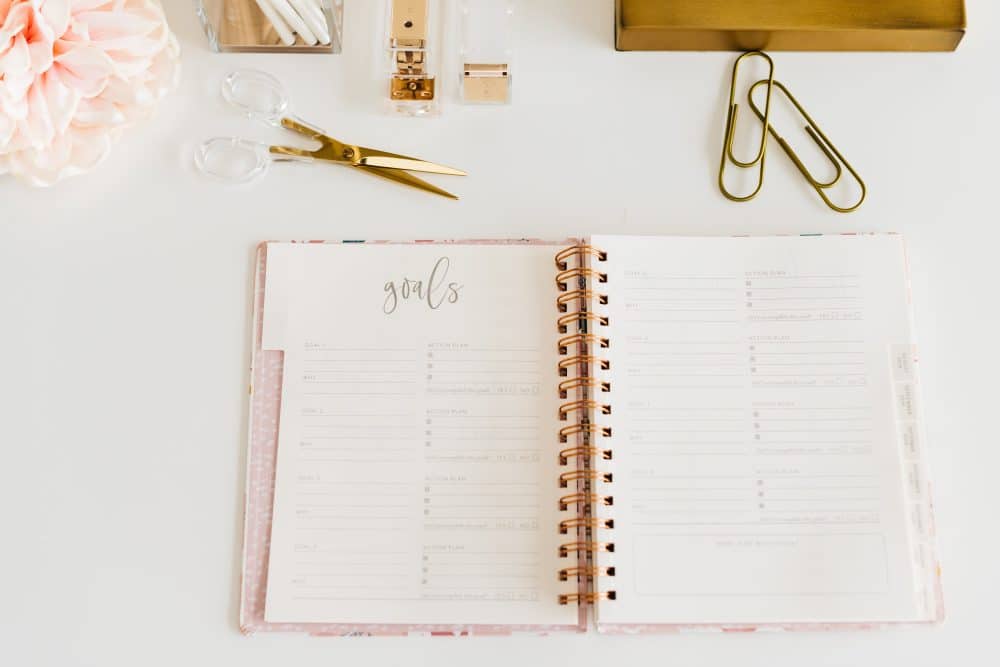Attachment-Based Goals for Relationships That Last

Published on January 20, 2022 Updated on December 2, 2022
Every new year, people around the world make lists of resolutions they would like to keep during the year. Promises to exercise more, learn a new language, stick to a diet. This year, we suggest dedicating at least a few of these resolutions towards achieving goals for relationships that are healthy, balanced, stable, and long-lasting.
Now that the new year has just begun, it’s a great time to reflect on your bonds with the people in your life:
- What aspects of your relationships could be improved?
- What could you work on this year to make your relationships more satisfying?
- How can you stop undermining your relationships?
- What can improve communication between you and your partner?
- Is your fear stopping you from being who you want to be?
Attachment styles affect our relationships with friends, family, and significant others. The secure attachment style is typically linked to the ability to form healthy, open, and long-lasting social bonds. On the other hand, insecure attachment styles are associated with specific characteristics that could prevent us from engaging in relationships in the best possible way.
Keeping that in mind, it might be beneficial to take your attachment style into account when creating your goals for relationships. To guide you through that process, we’ve utilized multiple research findings and outlined tips for people with each of the four attachment styles:
- anxious/preoccupied attachment
- avoidant/dismissive attachment
- disorganized attachment
- secure attachment
Don’t know your attachment style yet? Take our free quiz and find out in just 5 minutes!
Anxious Attachers’ Goals for Relationships: Focusing on Yourself
If you are an anxious attacher, chances are you might feel insecure in your relationships and be excessively critical of who you are and what you do. This can lead you to ask excessively for reassurance from your partner and be constantly worried about how you behave.
This year, you might want to try focusing more on yourself and pay extra attention to your personal needs and inclinations.
#Need less outside validation

Feeling insecure in your relationships, both personal and professional, can lead to constantly needing the validation of others. But you have to remember that people around us aren’t always going to recognize our value. And that’s OK. This year, aim to work on being proud of yourself and your choices even without the explicit validation of others. You could also try keeping track of your successes – big or small – in a journal. Take a note of what you have accomplished and soon you will be able to fulfill your own need for validation.
Another suggestion is to try to spend less time on social media as it increases the need for approval and makes people more vulnerable to the opinions of others [1]. Indeed, studies have found that anxious people tend to use Facebook as a substitute for the validation they feel they are missing from their lives [2]. If this is something you find yourself doing, consider strategies to limit your social media use.
#Don’t sacrifice your needs for someone else
As an anxious attacher, you might have an innate fear that others are going to reject or leave you. Because of this, you might go above and beyond to satisfy your significant other’s needs – even at the expense of your own. To you, this may seem like a good strategy to keep your partner happy. But in the long run, it might not be healthy for you and could put a strain on the relationship.
Relationships require some sacrifice, but excessive self-sacrificing on the behalf of one partner ultimately undermines the relationship. When you find yourself in such situations, investigate your reasons for making the sacrifice (e.g. Is it really necessary for the good of the relationship, or are you just trying to avoid conflict and make your partner less likely to leave?)
The key to finding the right balance here is to be supportive and compromise without giving up too much of yourself. Work on creating goals for relationships that revolve around establishing that balance. Before making big or small sacrifices, ask yourself whether your partner would do the same for you, and weather the sacrifice you are making is really necessary.
Expressing Feelings: Solutions for Avoidant Attachers
As an avoidant attacher, you might think that you are better off alone. You are likely a self-sufficient person, believe in yourself, and don’t like to depend on others. All of these things are good in moderation: there’s nothing wrong with being capable of standing on your own. Nevertheless, building close relationships with others can bring immense benefits to your life.
This year, we advise avoidant attachers to work on bringing emotional closeness into their lives.

#Be more open about your feelings
You may be used to keeping things to yourself, but expressing your feelings to the people around you can be immensely beneficial. Being open about your emotions leads to better resilience and the ability to handle stress [3,4].
In general, healthy relationships are based on open communication and sharing of opinions and problems. Consequently, expressing your feelings to your partner can increase intimacy and improve communication [5]. On the contrary, if you are not open with your partner, trust issues may emerge and the relationship may suffer in the long run.
So our advice is: share how you feel with your significant other more often. Even though it might seem scary at first, the emotional risk will be worth it in the long run.
#Ask for help when you need it
As an avoidant attacher, you may be used to doing things on your own, and you may not like asking for help. Still, learning to rely on others can bring you benefits.
You may interpret asking for help as a sign of weakness, but, on the contrary, it is actually a sign of maturity. It’s likely that no one will judge you for it. At the same time, you are demonstrating that you trust your partner. Doing so will improve your communication and can create a deeper connection with your significant other.
Goals for Relationships of Disorganized Attachers: Getting Over Your Fears
Disorganized attachers tend to be ambivalent about relationships. If you have this attachment style, you may have found yourself desiring intimacy with others, but at the same time having a hard time feeling comfortable in relationships.
This year, try cultivating more positive views as well as trust towards others.

#Be more trusting of others
You might find it challenging to have faith in other people. Still, putting in a little work to trust others more can have incredibly positive consequences for your life and relationships.
Trust is one of the more essential elements of a healthy relationship, and it can make the relationship more stable and long-lasting. For instance, being able to trust your partner allows you to safely rely on them when needed. If you are not confident that your partner will be there for you, you may let your anxiety get the better of you, and your relationship may suffer as a consequence [6]. To increase trust in your relationships, aim to be more open and communicative with your partner; be honest about how you feel and trust that your partner will be there for you with no judgment.
#Don’t let your fear of getting hurt stop you from pursuing relationships
As a disorganized attacher, you may have been hurt in the past and may now avoid meaningful connections due to a fear of getting hurt again. Whatever the reasons for your reluctance, attempting to overcome it could be a turning point in this new year.
Take things slow and be open to new possibilities when they present themselves. Learn to not constantly look for rejection and disappointment. Don’t let your fear sabotage your relationship prematurely. You could also consider seeking professional help from a licensed mental health practitioner to help you move past old hurts and open yourself up to new possibilities.
Secure Attachment and Relationships
If you are a secure attacher, you are likely already comfortable expressing emotions, and you value communication with your partner, friends, and family. Also, you may be comfortable both in a relationship and on your own. But even a secure attacher can get something out of this list of resolutions for making your relationship healthier in the new year. If you relate to any of the tips discussed above, feel free to make use of them.

Another thing you can do this year is to support your insecure attacher friends and partners.
If someone close to you is dealing with attachment insecurity, it might be a good idea to familiarize yourself with the characteristics, causes, and difficulties associated with their attachment style. This way, you can be there for them on their journey towards healing. Be open and understanding, and keep in mind that you might serve as an example of what attachment security looks like. So, make sure you utilize this superpower in the best way possible – to help the ones you love understand secure attachment.
Setting Goals for Relationships in the New Year
We hope that these tips will inspire and encourage you to build New Year’s resolutions and goals for relationships that are healthy, balanced, and long-lasting. Working on your relationships is not always easy. But remember that other people will be there for you if you give them the chance. Remember – if you feel you need professional help, contact a licensed mental health professional who can guide you on the path towards secure attachment and address the issues that may emerge from attachment insecurity.

References
[1] Yau, J. C., & Reich, S. M. (2019). “It’s Just a Lot of Work”: Adolescents’ Self‐Presentation Norms and Practices on Facebook and Instagram. Journal of research on adolescence, 29(1), 196-209.
[2] Flynn, S., Noone, C., & Sarma, K. M. (2018). An exploration of the link between adult attachment and problematic Facebook use. BMC psychology, 6(1), 1-16.
[3] Moreno, P. I., Wiley, J. F., & Stanton, A. L. (2017). Coping through emotional approach: The utility of processing and expressing emotions in response to stress. In The Oxford handbook of positive psychology. Oxford University Press.
[4] Eldeleklioglu, J., & Yildiz, M. (2020). Expressing Emotions, Resilience and Subjective Well-Being: An Investigation with Structural Equation Modeling. International Education Studies, 13(6), 48-61.
[5] Kardan-Souraki, M., Hamzehgardeshi, Z., Asadpour, I., Mohammadpour, R. A., & Khani, S. (2016). A review of marital intimacy-enhancing interventions among married individuals. Global journal of health science, 8(8), 74.
[6] Campbell, L., & Stanton, S. C. E. (2019). Adult attachment and trust in romantic relationships. Current Opinion in Psychology, 25, 148–151.











 Get mental health tips straight to your inbox
Get mental health tips straight to your inbox








